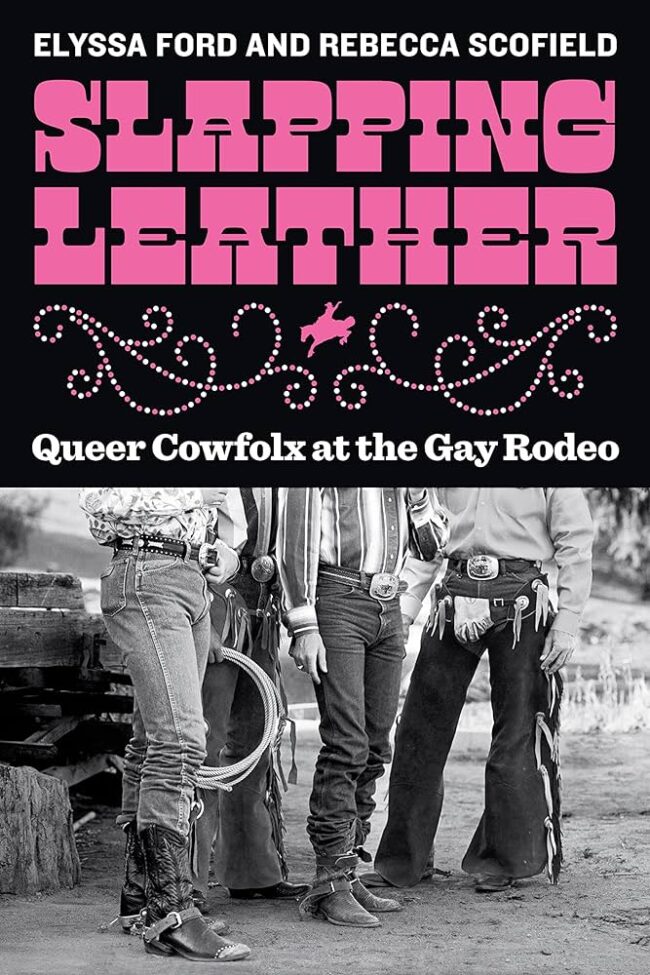Author of “Slapping Leather” to speak on Queer Rodeo at UCO

On March 29, UCO will host a talk by Elyssa Ford, shedding light on the stories of gay rodeo. Ford, associate professor of history at Northwest Missouri State University, will share her latest research, exploring nuanced expressions of masculinity and the impact of the AIDS epidemic on the gay rodeo community.
Ford’s research stems from her latest co-authored book, “Slapping Leather: Queer Cowfolx at the Gay Rodeo.” In the book, Ford shows how the AIDS crisis reshaped the landscape of gay rodeo. Between fundraising efforts and community resilience, the book tells a story of solidarity.
Equality has always been ingrained in the ethos of gay rodeo, with all events open to men and women though they compete in separate events and are judged separately. However, despite intentions of across-the-board equality, female participation has never exceeded 25%, Ford explained.
This imbalance leads to larger prize pools for men because of higher contestant numbers, perpetuating a “male-dominated, masculine-focused environment” that may exclude lesbians or less masculine presenting gay men, Ford said.
Transgender participation in the rodeos is complex, and Ford notes there has been some rule evolution over time.
“One of the things they’re not as comfortable about are people like, repeatedly changing gender identities for the events that they compete on,” Ford said. This is intended to keep participants competing in static categories but could present problems for people who are nonbinary, genderfluid, or transition multiple times throughout their lives.
Also, rodeo can be a dangerous sport. Since the medical system is at times a dangerous or not-so-affirming place for queer folks, there are particular setups to handle injuries.
“When someone is injured at a rodeo, especially if there’s a trans contestant who’s injured, there always needs to be a support person from the rodeo that goes with them to the hospital, to help in terms of, like, treatments, and identity and names, and all of those things. And like, these are conversations that they were having 20 years ago. So even though they’re not like, perfect, or always the most progressive, in many ways, they were having a lot of these conversations much earlier. And so in general, like, the trans members of gay rodeo feel really welcome there. So that’s been good to see,” Ford said.
Another aspect of gay rodeo is the urban cowboy. Oklahoma City is home to The Great Plains Rodeo Association, who “are a group of volunteers who strive to promote gay rodeo,” according to their Facebook page. Last year, the 35th World Gay Rodeo Finals were held in El Reno, OK.
In the 1970s and even today there is a phenomenon of “rural to urban transplants” who seek acceptance in the cities that they might not find in their small towns, Ford said.
Challenging conventional narratives, Ford’s research reveals the diverse experiences that define the American cowboy. Drawing from historical archives, she dismantles the romanticized and comparatively shallow portrayal of cowboys propagated by mainstream media.

